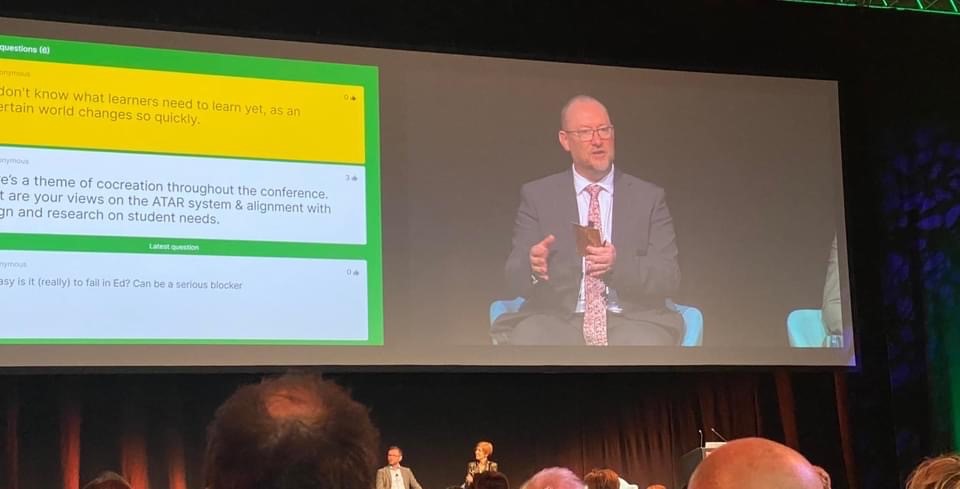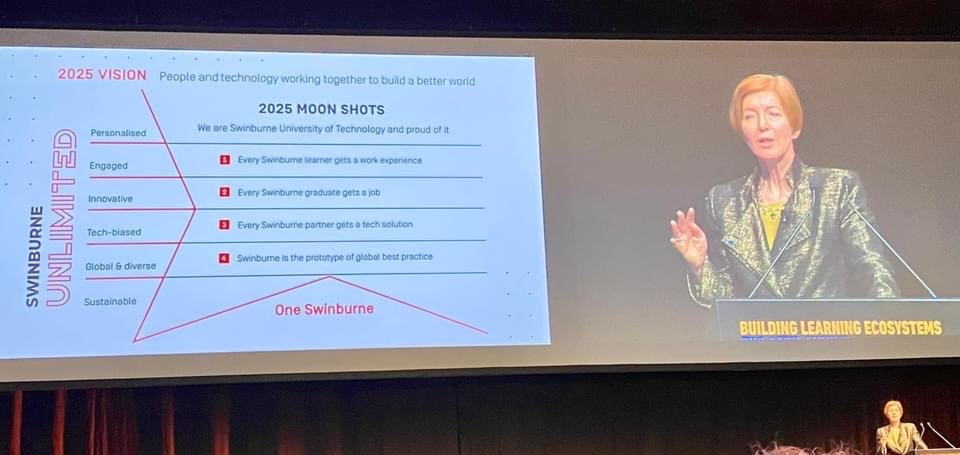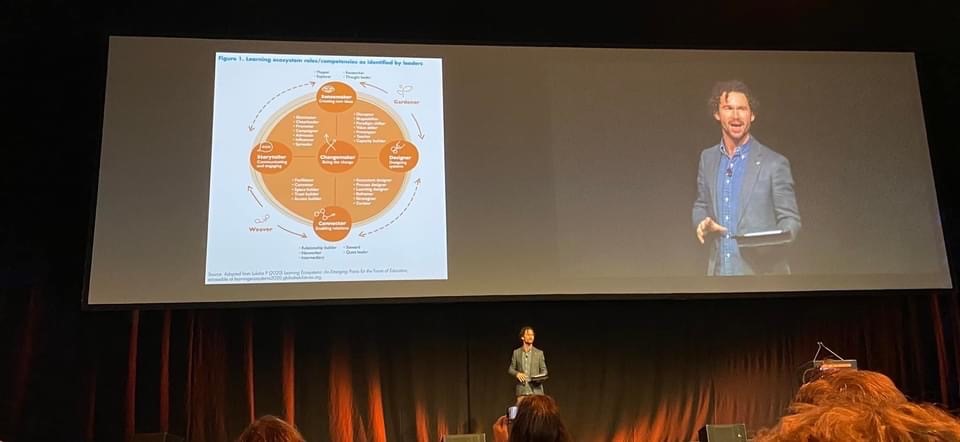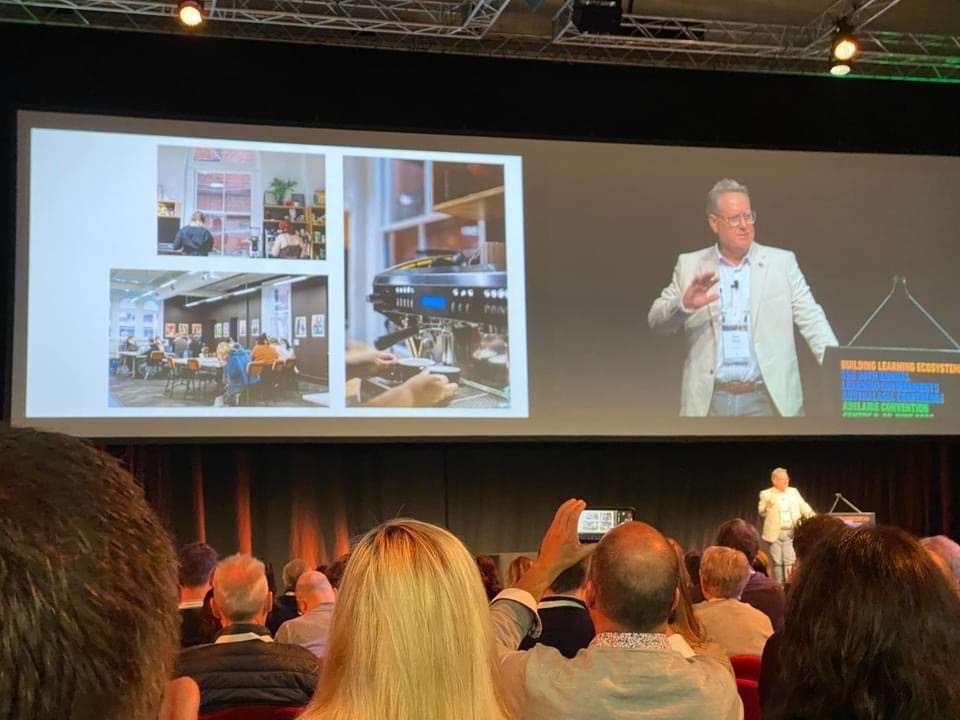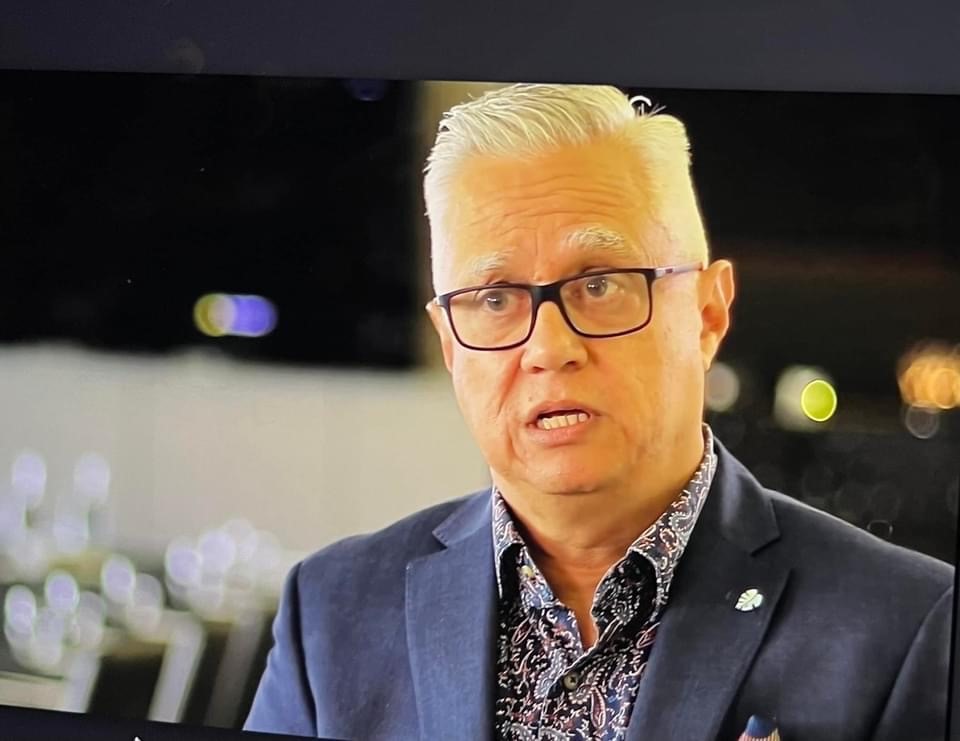Building Learning Ecosystems
Learning Environments Australasia International Conference Adelaide. – what a Winner! – A complete sellout over 600 attendees- over 50% educators !
As I prepared to resign as one of the 6 Chairs of Learning Environments Australasia Region in leaving Qld soon, it was so heartening to be part of one of the best Contemporary Educational Conferences in years. The LEA Conference focussed on rich contemporary topics from speakers such as Children’s Commissioner SA, Julia Gillard, Director General SA, Deputy VC Swinburne Uni, Louka Parry etc. If you talk to any Principal or Educator who attended you may hear how the provocations were authentic, challenging and meaningful.
Many educators were heard saying “I am surprised this conference has very little to do with physical innovative learning environments and more to do with what is rich contemporary schooling”
The first Keynote of the conference was Helen Connolly who is the SA commission we for children and young people. Her message was about seeing children as citizens with rights, the importance of engaging children as key stakeholders in school decision making and that this is actually mandated in article 12 of the UN Convention on the rights of a child. Helen is engaging in some excellent stakeholder engagement with the young people in South Australia and as a result is developing some excellent data about what children and young people care about. I can highly recommend spending some time on her website. https://www.ccyp.com.au/the-commissioner/
The second Keynote was Dr Kristin Alford who is a futurist and has developed the MOD museum in Adelaide designed to engage people in futures thinking. https://mod.org.au/
She shared some interesting perspective on futures thinking and the role of technology in futures. In particular I found her unpacking of what it means to take a “200 year present” perspective. This involves making decisions by considering what our grandparents would think and what our grandchildren would think. Her belief is that this kind of thinking helps us to sharpen and live out our values and perhaps change our decision making in the now. Her belief is that we will all become agents for change if we have a positive view of the potential future combined with a level of anger or frustration about aspects of the present that will help to motivate us and drive us forward.
The combination of these two mindsets will drive the belief that you can make a difference and the motivation to make it happen. I think this is very apt for the work that we do in education, particularly in the area of contemporary transformation. There is often much reference to the fact that children in our primary schools today are preparing for jobs that likely don’t exist yet. Dr Alford had some interesting perspective on this saying that Law and Medicine roles are likely to change significantly and require a very different skill set in the future than they do now and that two roles she predicts will be grief counsellors for global systems and data storytellers.
Another very interesting Keynote was Prof. Pasquale Quester who is the Vice Chancellor of Swinburne University who talked about her vision for the university and her understanding of the new role in education which is to be a curator of the experiences that lead people to learning. And finally some wise words from Louka Parry, who talked about the need for all in education to awaken the fire in young people not just to contribute to a powerful economy but also to a more just and equitable world.
Derek
